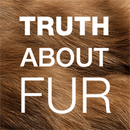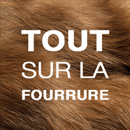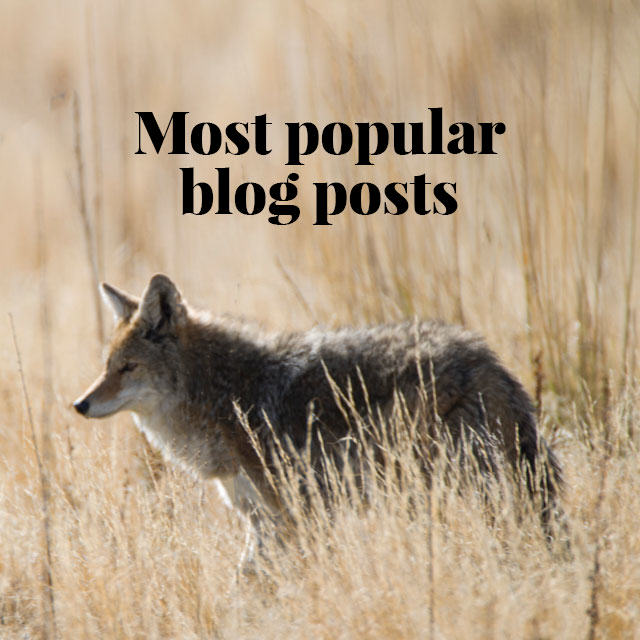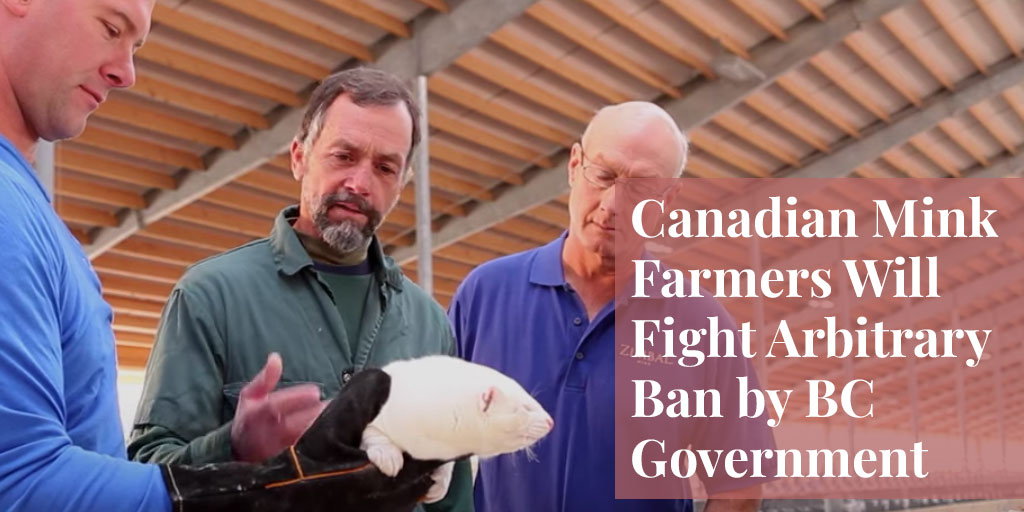
On November 5, Lana Popham, British Columbia’s Minister of Agriculture, Food and Fisheries, announced that the province “is beginning a process to phase out B.C.’s mink-farming industry due to ongoing public-health risks associated with COVID-19.” But one of North America’s most respected veterinary experts has denounced this arbitrary ban as an “overreaction” that is “not supported by science”.
“The British Columbia government’s declaration to end the livelihood of these farm families does not seem to be supported by the current scientific knowledge and appears to be an overreaction to a situation with very limited health risk to the general human population,” says Dr. John Easley, director of research for Fur Commission USA. (See his full statement, below.)
The government’s decision seems especially unjustified now that a new vaccine has been developed to protect mink from the Sars-CoV-2 virus, he says.
While the Sars-CoV-2 virus has been detected on mink farms in many countries over the past 18 months, “the vast majority of these infections have been self-limiting, and posed very limited risk to the caretakers of the livestock,” he continues. No Variants of Concern have developed on mink farms, according to the World Health Organisation.
Most viral mutations are species-specific in their pathology, so the virus circulating in the human population – especially the unvaccinated population – presents by far the greatest risk to produce a Variant of Concern. “So, if the governmental agencies’ goal is to reduce the risk of a new Variant of Concern being developed, why haven’t they already mandated that all the citizens be vaccinated?” asks Dr. Easley.
“And how are they going to address the risk due to the domestic cat population’s susceptibility to the virus – or all the other animal species [including hamsters, ferrets, and white-tailed deer] that we now know can be infected and reproduce the virus?”
Strict Biosecurity Protocols Followed
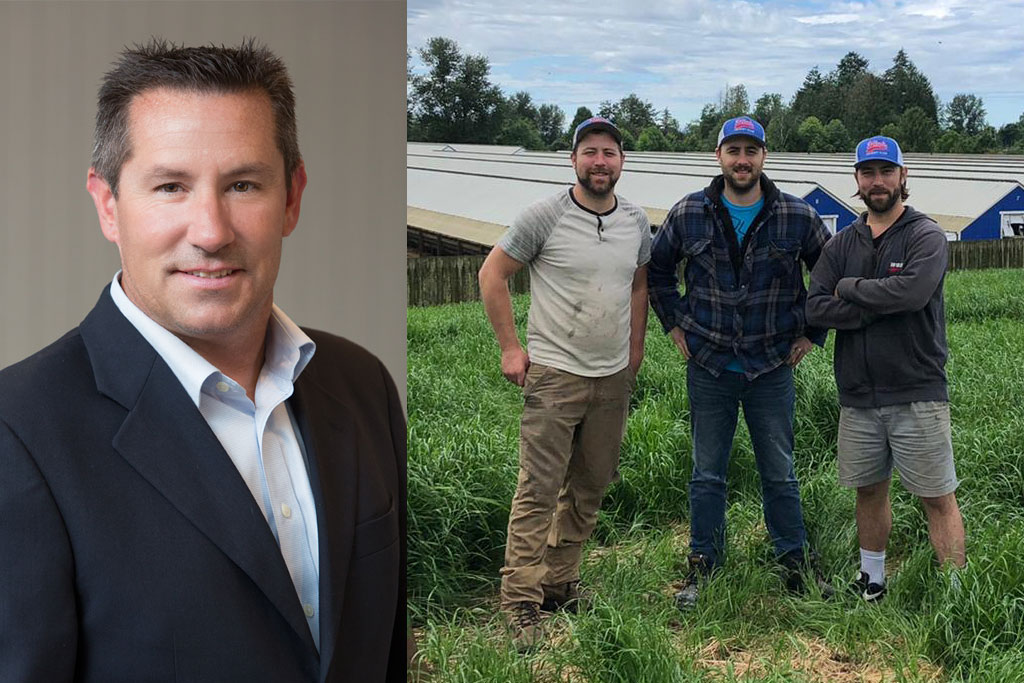
“Since we learned that mink can contract Covid-19 from humans, Canadian mink farmers have worked with government agencies to implement strict biosecurity protocols,” says Rob Bollert, a mink farmer and president of the Canada Mink Breeders Association (CMBA). “As proof of how conscientiously these measures have been applied, the Sars-CoV-2 virus has been detected on only three of our farms – just 5% of the 60 Canadian mink farms situated across the country.”
“This arbitrary and radical decision by the BC government is simply devastating for farm families,” says Bollert. “It takes generations of work, including excellent nutrition and care as set out in Canada’s comprehensive codes of practice, to develop the quality of mink that Canada is famous for – and these bureaucrats are destroying all that effort, without any real scientific justification. With only one Sars-CoV-2 positive farm in BC at the present time, this will mean that farmers will be forced to kill perfectly healthy herds of animals. This is unprecedented.”
SEE ALSO: With proper precautions, mink farms don’t pose Covid-19 risk. By Alan Herscovici, Truth About Fur.
“We know that animal activist groups in BC have been campaigning against mink farming for years, as the thin edge of the wedge in their efforts to eliminate all animal agriculture. They have been fanning Covid fears to further that agenda. But it is shocking that the BC government would surrender to activist pressure tactics, rather than basing policy on science and proven good practice,” says Bollert.
In the US, Sars-CoV-2 has been detected on 16 farms in four states, but the Centers for Disease Control (CDC) and the US Department of Agriculture have not recommended culling healthy animals or banning mink farms. Dr. Anthony Fauci, director of the National Institute of Allergy and Infectious Diseases in Maryland and Chief Medical Advisor to the US President, has stated that, with proper biosecurity measures in place, the CDC considers the Covid risk that mink farms represent for the general public to be low.
“Pandering to Animal Activists”
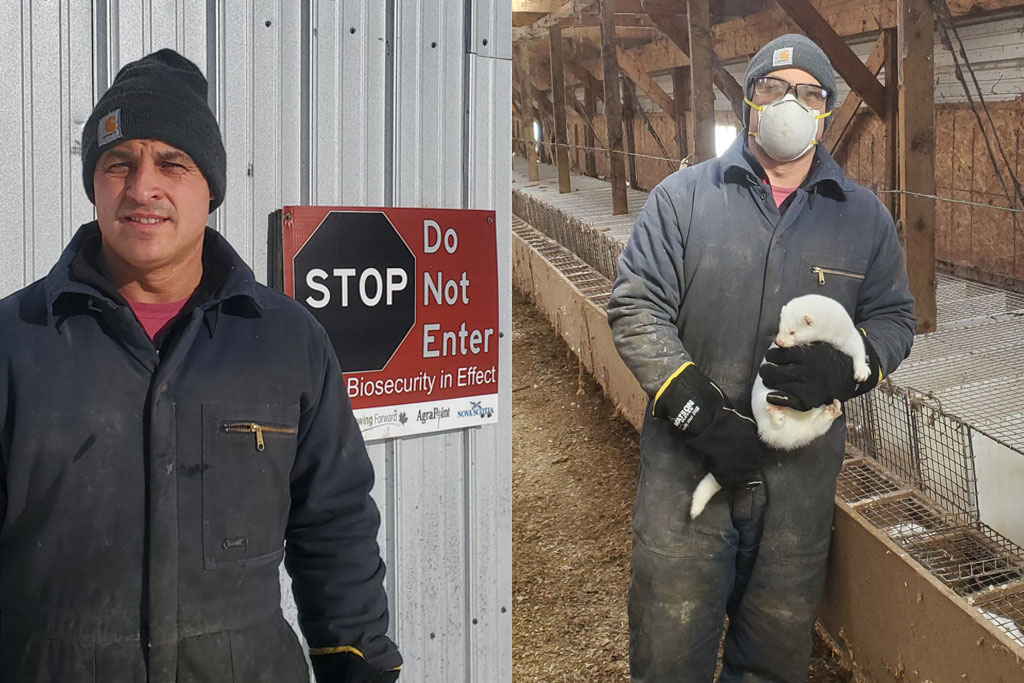
“When cases of Swine Flu or Avian Flu emerged in this country, the government didn’t shut down pork or chicken production – although that’s exactly what animal activists were calling for,” says mink farmer Matthew Moses, president of the Nova Scotia Mink Breeders Association and past president of the CMBA. “Instead, government agencies worked with producers to responsibly manage the situations.”
SEE ALSO: David Suzuki got it wrong; mink farming makes sense. By Matt Moses, former president, CMBA.
“BC mink farmers have implemented all the security measures requested by the BC health and agriculture officials, but it looks like the BC government in this case is more interested in pandering to animal activists. Is it because we are a very small sector, with only nine farms in BC? Is that why they are ready to destroy the work and livelihoods of these farm families?” asks Moses.
“The proof that the BC government does not really believe mink farming to be a public health risk is the fact that they are permitting producers to keep live mink on their farms for another 18 months, and to sell or transport them to other provinces,” states Moses.
“The BC government’s knee-jerk decision is especially disappointing because mink fur is a sustainably produced, long lasting, and biodegradable, natural clothing material – exactly what environmentalists are saying we should be choosing instead of petrochemical-based, throwaway, ‘fast fashion’,” says Bollert.
“We are looking at all our options to fight this arbitrary decision. Animal activists are saying openly that this is just the first step in their campaign to eliminate all production of animal products, including meat and dairy. This is a wake-up call for all agriculture, and for everyone who believes that government policy should be based on science, not activist propaganda.”
* * *
Response to BC government’s arbitrary ban on mink farming, by Dr. John Easley, Director of Research, Fur Commission USA (November 5, 2021)
This is an unfortunate decision that doesn’t seem to be supported by the experience and knowledge we have gained during the last 18 months since the North American farmed mink industry started to address the mink’s susceptibility to the Sars –CoV-2 virus.
Over that period many counties have experienced infections in their farmed mink operations and the vast majority of these infections have been self-limiting and posed very limited risk to the care takers of the livestock. No Variants of Concern have ever been developed due to the viral replication in mink according to the WHO. Many viral mutations are species specific in their pathology; so, the virus circulating in the human population, especially the unvaccinated population, is by far the greatest risk to produce a Variant of Concern that would put the general population at risk. So, if the governmental agencies’ goal is to reduce the risk of a new Variant of Concern being developed, why haven’t they already mandated that all the citizens be vaccinated? How are they going to address the risk due to the domestic cat population’s susceptibility to the virus and/or all the other animal species that can be infected and reproduce the virus, thusly, potentially producing a new Variant of Concern?
The North American farmed mink industry has worked collaboratively with many governmental agencies to develop effective biosecurity protocols for the farms and their employees. They have also supported the development and the utilization of a Sars-CoV-2 vaccination for the mink. This vaccine was granted experimental approval by USDA and was tested in 90% of the mink in the United States, over 3.2 million doses were utilized. It was proven to be extremely safe. Since the enactment of the enhanced farm biosecurity measures, the farm animal caretakers being vaccinated and the mink themselves being vaccinated, there have been no new diagnosed farm infections in the USA.
The British Columbia government’s declaration to end the livelihood of these farm families does not seem to be supported by the current scientific knowledge and appears to be an overreaction to a situation with very limited health risk to the general human population.
John Easley DVM
Director of Research
Fur Commission USA
SEE ALSO: Covid and mink: Resources. Fur Commission USA.
***
To learn more about donating to Truth About Fur, click here.
